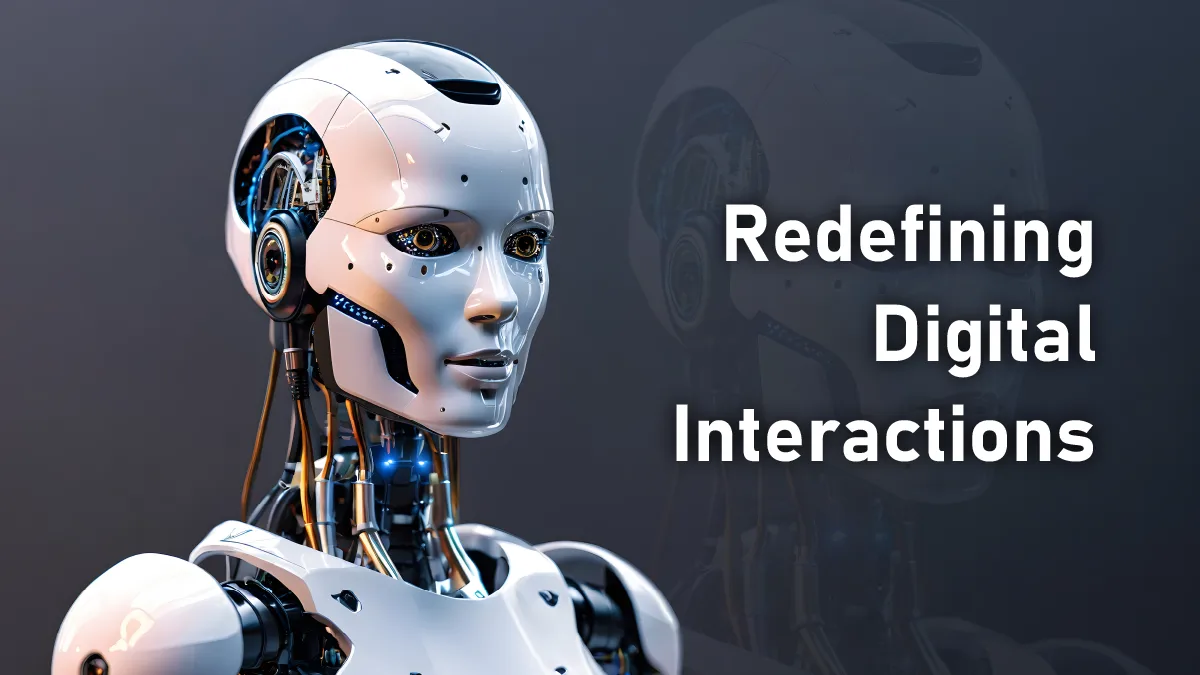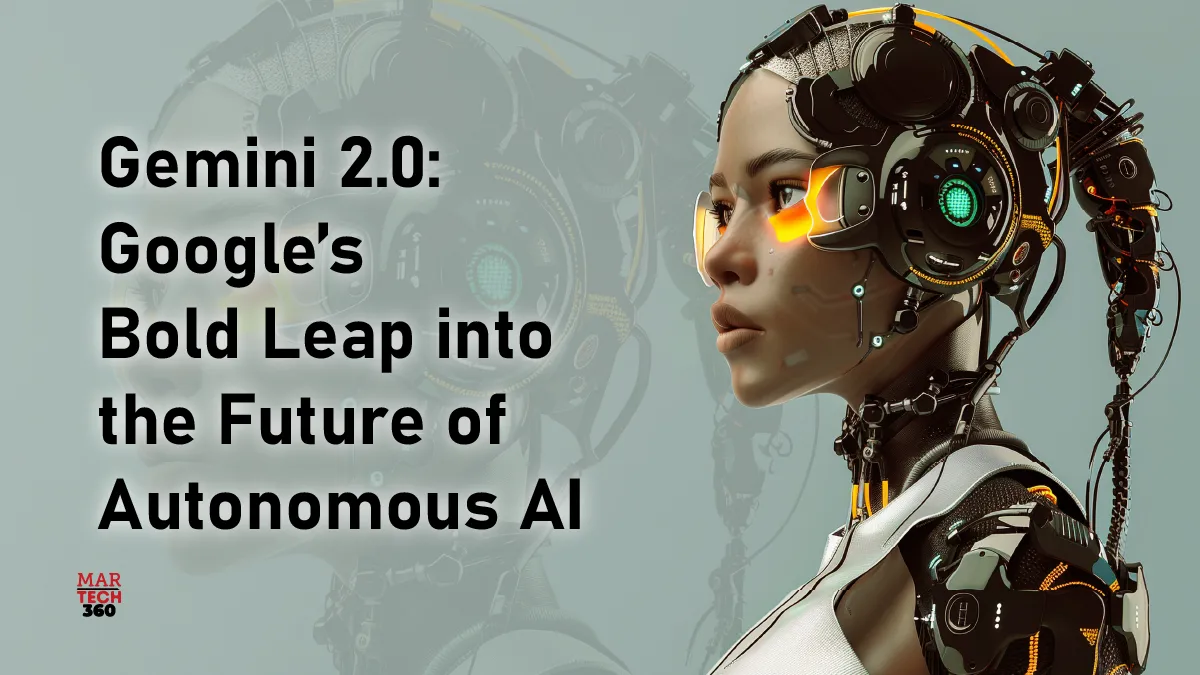In artificial intelligence (AI), a little but possibly big change is taking place. Machines are becoming increasingly autonomous and are no longer just processing commands.
A significant milestone in this development may have been reached with Google’s release of Gemini 2.0, which demonstrated AI systems capable of handling challenging tasks on several platforms on their own. This release introduces groundbreaking features such as native image generation and multilingual audio capabilities, positioning Google to compete directly with OpenAI and Anthropic in the rapidly evolving AI landscape.
Arriving nearly exactly a year after the first Gemini release, the launch marks a turning point in the development of artificial intelligence. A new era of “agentic” AI systems is ushered in with Gemini 2.0, in contrast to traditional AI systems that mostly respond to user requests. These systems possess the ability to understand nuanced contexts, plan multi-step processes, and execute supervised actions on behalf of users, marking a significant advancement in AI capabilities.
Redefining Digital Interactions

Google’s new AI assistant promises to transform how users interact with technology in their daily lives. Tulsee Doshi, Director of Product Management for Gemini, detailed the system’s enhanced functionalities during a press conference, demonstrating real-time image generation and seamless multilingual conversations. The system also features intelligent tool use, enabling direct access to Google products like Search and even executing code. This integrated approach represents a significant leap forward in making AI more interactive and functional for end-users.
The first iteration of Gemini 2.0, known as Gemini 2.0 Flash, is an experimental version that operates at double the speed of its predecessor while surpassing the performance of even more powerful models. This achievement highlights Google’s ability to enhance efficiency without compromising functionality, a challenge that has long plagued advancements in AI.
The Next Generation of AI Agents

One of the most groundbreaking aspects of Gemini 2.0 is its role in supporting three prototype AI agents designed to redefine AI’s role in both consumer and enterprise environments.
With Project Astra, Google showcases its forward-thinking approach to AI, redefining the capabilities of a universal AI assistant. This prototype can engage in complex multilingual conversations, access Google tools, and retain contextual memory for up to 10 minutes within a session. The ability to remember past interactions allows for a more personalized and seamless user experience. During a live demonstration, the system showcased its capability to transition between languages and access real-time information through Google Search and Maps, setting a new standard for consumer AI products.
Also Read: Why Sustainable Marketing is Essential for Modern Businesses
Two specialized AI agents were launched by Google for enterprise applications:
- Project Mariner, designed to automate complex technical tasks, achieved an impressive 83.5% success rate on the WebVoyager benchmark for real-world web tasks. This prototype, available as a Chrome extension, demonstrates the potential for AI to navigate and perform actions across digital environments with unprecedented accuracy and efficiency.
- Jules, another enterprise-focused agent, further extends the functionality of Gemini 2.0 by streamlining technical operations and supporting developers in automating intricate processes.
Powering Innovation with Trillium TPUs
Underpinning Gemini 2.0 is Trillium, Google’s sixth-generation Tensor Processing Unit (TPU). This custom AI accelerator is now generally available to cloud customers, showcasing Google’s commitment to building an extensive computational infrastructure. Over 100,000 Trillium chips have been deployed in a single network fabric, enabling massive-scale AI operations. Logan Kilpatrick, a Product Manager on the AI Studio and Gemini API team, emphasized the significant growth in developer adoption, with millions now leveraging Gemini for various applications. The infrastructure advancements reflect Google’s readiness to scale AI systems for broader and more complex use cases.
Balancing Innovation with Responsibility
One of the biggest changes in the industry since the launch of OpenAI’s ChatGPT is Google’s strategy push toward autonomous AI systems. While competitors focus on enhancing large language models, Google is betting on AI systems that can actively navigate digital environments and autonomously complete complex tasks. This vision of AI agents capable of thinking, planning, and acting independently introduces new possibilities but also raises critical safety and ethical concerns.
To address these challenges, Google has implemented robust safety measures, including extensive testing with trusted users and a gradual rollout of new features. Shrestha Basu Mallick, Group Product Manager for the Gemini API, emphasized Google’s commitment to responsible AI development. The company’s approach ensures that safety and responsibility remain at the forefront as AI systems become more autonomous.
A Competitive Landscape
The release of Gemini 2.0 comes at a time when Google faces mounting competition from Microsoft, OpenAI, and Anthropic, all of which have made significant advancements in AI this year. As these companies vie for dominance, Google’s massive investment in custom silicon, infrastructure, and advanced AI agents signals its determination to lead in this new era of AI development.
The Future of Autonomous AI
With Gemini 2.0, Google is reshaping the AI landscape. The system’s ability to understand, plan, and act independently represents a departure from the reactive AI assistants that have dominated the market until now. This evolution could fundamentally transform how people interact with technology, pushing the boundaries of what AI can achieve.
One year ago, the AI industry was characterized by chatbots limited to engaging conversations but incapable of real-world functionality. Today, with the introduction of Gemini 2.0, the industry stands at an inflection point. The question is no longer whether AI can understand human intent but whether society is ready to embrace AI systems that can act autonomously. Google is betting on this future and is prepared to lead the charge toward a new era of intelligent, autonomous AI.


Comments are closed.